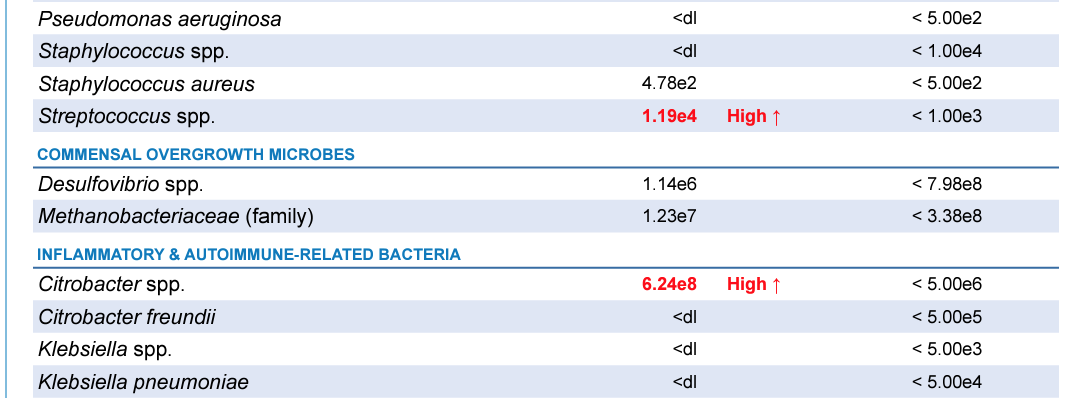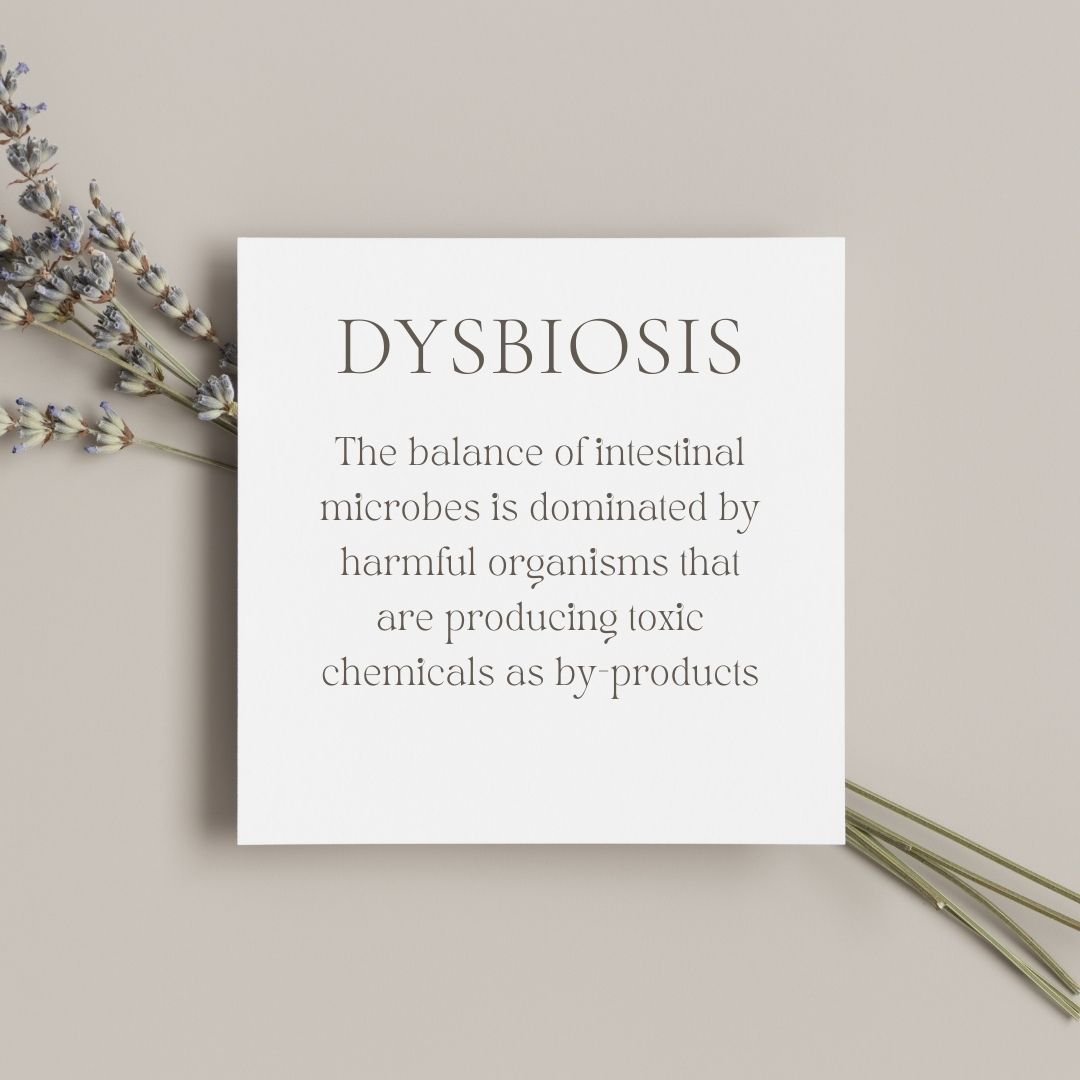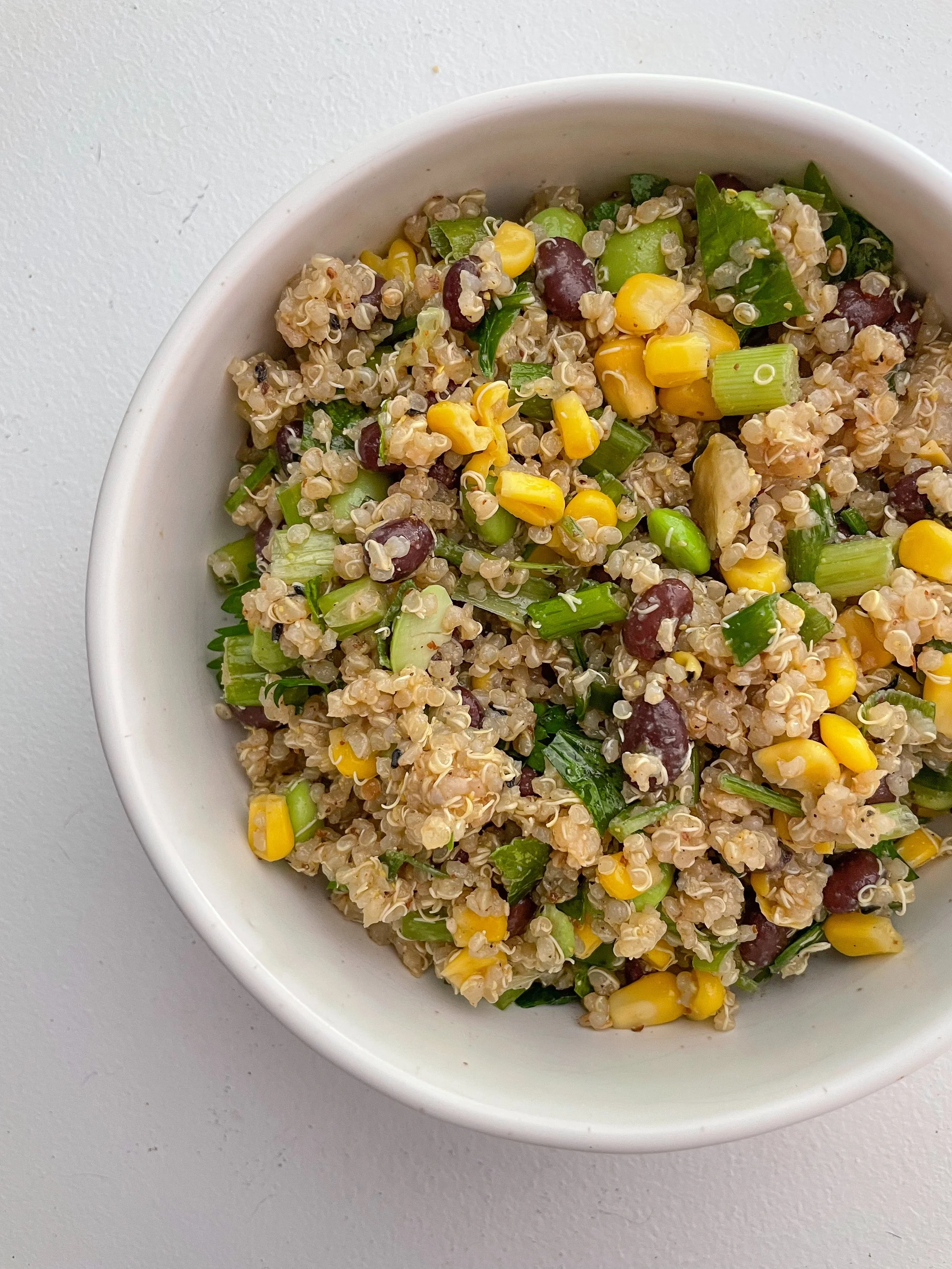Gut Dysbiosis symptoms, causes and tips
Dysbiosis is a word thrown around a lot, but what does it really mean? It this a wellness hyped situation or is this truly something many are dealing with?
As a nutritionist running lots of GI-MAP stool tests, I do see this often.
We have several different types of gut bugs. Firstly, symbionts that benefit us. Secondly, commensal microbes that aren’t harmful, but don’t provide tons of benefits. Lastly. pathogenic bacteria, viruses and parasites that do cause harm to the host, that’s YOU! Symbionts and commensal bacteria help keep opportunistic microbes lower and that is one reason why it’s important your microbiome have life. How do we do that?
Well, eat plants because they contain fibre and focus on diversity. More specifically, 30 different plants a week (don’t worry, this contains spices too). We also want to focus on ‘probiotic’ rich foods, basically anything fermented. Prebiotics are food for your bacteria and that helps too. Think onions, garlic, green bananas, beans and cooked then cooled potatoes.
Did you know gut symbionts and commensals make up 30-50% of your feces? Just wild!
Pathogens produce endotoxins and our liver has to work to detoxify these. I often see clients with acne, rosacea, psoriasis and eczema and this is due to the connection between the gut and liver. If you want to learn which foods to focus on for liver health? Read this older blog. I detest ‘liver cleanses,’ but if you’re supporting the root cause of why your liver may be overburdened, I’m all for ensuring its functioning optimally. The liver does have over 500 functions!
What is dysbiosis?
The balance of intestinal microbes is dominated by harmful organisms that are producing toxic chemicals as by-products. These toxins can be absorbed into the bloodstream causing gut inflammation, cause irritation, mucous production, leaky gut (more permeable intestine) and are taxing on the immune system.
Autoimmune diseases and allergies can be due to chronic inflammation and a weak immune system so it’s important to support if you think your gut health has shifted.
Here are some aerobic and anaerobic bacteria I see with my clients test results.
The two main reasons I see dysbiosis in practice:
1- Not enough good microbes
Antibiotic use because they kill the good and the bad bacteria. They’re often ingested when eating animals too because of the poor living conditions they live in presents disease opportunity
Diarrhea flushes out symbionts (food intolerance, pathogen, contaminated food..)
Not enough whole foods. A diet in high in processed foods, alcohol, tobacco won’t feed your gut bugs
Tap water with chlorine needs more research. I do wonder about chlorine also killing our good bacteria
2- A microbial overgrowth
Reduced digestive capacity. Are you breaking down what you eat? Overeating? Low stomach acid or digestive enzymes? I support clients with this by doing stool testing. It’s important to rule out H. pylori that reduces stomach acid
Your nervous system impacts your stomach acid and ability to digest food
Are you in fight of flight?
Are you consuming a lot of caffeine?
Anxious?
Have you done the beet test for transit time?
Some drugs, such as steroids, can promote the growth of organisms
Food borne illnesses, pathogens from cats or dogs, water supply, travel
Symptoms of Dysbiosis
craving sugar and sweets
constipation, diarrhea, bloating or abdominal pain
fatigue
itchy skin or rashes
UTI’s or reoccurring vaginal infections
memory and concentration difficulties
PMS or menstrual irregularities (hormone health is tied to gut health!)
A change in your health with no other health conditions confirmed
Do I recommend probiotics for dysbiosis? Yes, most of the time I do. They provide benefit even if they’re just passing through and are transient. By increasing the good bacteria through food and supplements, we help decrease the pathogens present. Probiotics can also breakdown toxins aiding in detoxification as well as reduce the immune response to antigens (IgA). Depending on your GI-MAP results, strain recommendation may vary.
Tips for dysbiosis
Eat fermented probiotic rich foods: sauerkraut, kimchi, miso paste..
Consume prebiotic rich foods: onions, garlic, chicory root, cooked and cooled potatoes/rice, beans
Eat as much organic food as possible to avoid over taxing this detoxification organ
Focus on fibre which is only in plants
Diversity, are you eating 30 different plants a week?
Work with a provider, like myself, to lower the unfavourable microbes or pathogens. Don’t do this yourself as you may experience a die off reaction if not done properly
Work on your digestive fire
Move your body to support your lymphatic system
Include antimicrobial foods: garlic, pumpkin seeds, coconut oil as well as herbs that your practitioner suggests for your specific GI-MAP results
Support your nervous system. We all have trauma to varying degrees and working on this is a must for healing
The goal of working with a practitioner is to determine if you have dsybiosis and WHY. I have seen a few clients that were just told to take anti-microbials and that’s it. Unfortunately, that may fix the current situation, but doesn’t fix the big picture. That client may get more opportunistic bacteria or parasites in the future because the root cause wasn’t dealt with. If you’d like to work 1:1 with me, please apply under services.

































